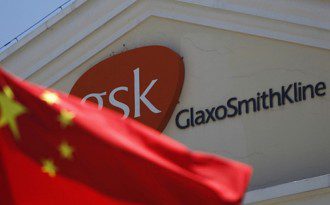Contributing Writer for Wake Up World
Pharmaceutical companies generally don’t have the best track record when it comes to transparency and fair dealings. Extortion, fraud, corruption, harassment, obstruction of justice and hit lists appear to be a “business as usual” model for the industry. It’s not only individuals who have been on the receiving end of Big Pharma’s harm, entire communities and countries are feeling the effects of their shady conduct as well.
One of the more recent publicized examples of corruption concerns China, where the country fined the UK pharmaceuticals firm GlaxoSmithKline (GSK) a staggering $490m when the company was found guilty of bribery. Meanwhile in Argentina, the company paid out $240,000 after it was found to be experimenting on human beings during vaccine trials, which lead to numerous deaths. Moreover, the firm dumped more that 45 liters of concentrated live polio into the water at a Belgium treatment plant, potentially endangering swimmers and fishermen, along with individuals working at the facility.
[pro_ad_display_adzone id=”110028″]
“An Open China is Not a Lawless One”
With a market of 1.4 billion people, China is an attractive country for multinational corporations seeking to expand their profit margin. Even so, the opportunity isn’t without risk. Over the last several years, China has established some of the toughest anticorruption laws around and has cracked down on companies who feel the country is a money making free-for-all without accountability. And no one has felt this more distinctly than GlaxoSmithKline.
Writes Keith Bradsher and Chris Buckley in the New York Times:
“Chinese authorities accused Glaxo of bribing hospitals and doctors, channeling illicit kickbacks through travel agencies and pharmaceutical industry associations — a scheme that brought the company higher drug prices and illegal revenue of more than $150 million. In a rare move, authorities also prosecuted the foreign-born executive who ran Glaxo’s Chinese unit.”
Initially, the company claimed the people involved in the scandal were “outside our systems of control” and were just a few rouge Chinese-born employees. But as the case progressed, it was discovered Glaxo’s British country manager, Mark Reilly, orchestrated a “massive bribery network” which had modified corporate travel expenses to disburse cash bribes.
“It’s very hard to do business in the Chinese health care and pharmaceutical sectors without doing payoffs,” said David Zweig, the director of the Center on China’s Transnational Relations at the Hong Kong University of Science and Technology. “Everyone else pays bribes. Glaxo just got caught.” [source]
Be that as it may, after the ruling in the Glaxo case, Xinhua — China’s official news agency — drove the point home that corruption will not be tolerated, stating “an open China is not a lawless one.”
The scandal in China is far from an isolated case. Similar claims against the corporation have been filed in Poland, Romania, United Arab Emirates, Lebanon, Jordan, Syria and Iraq. Even more disturbing is a corrupt GSK vaccine trial in Argentina which resulted in the death of 14 infants.
GlaxoSmithKline Under Fire — Again
“They are vulnerable sections of society. They are unable to read any kind of consent form. GSK’s recruitment of these people was absolutely unethical.” ~ Jorge Yabkowsky, president of the Argentine Federation of Health Professionals
A vaccine trial on 15,000 Argentine babies came under fire when information came to light that Glaxo failed to secure appropriate consent from the children’s parents before injecting Synflorix, a pediatric pneumonia vaccine. To make matters worse, the company kept inadequate records of the children’s medical histories, ages and previous injections. In several cases, permission for the jab was obtained from under-age parents or illiterate grandparents who did not fully understand the ramifications of the procedure. The fact that scientists were given a financial incentive for every child they vaccinated has added to the scandal.
“They recruited children in an irregular manner… They did not do what they were supposed to. They did not inform. There were not independent witnesses. They pressured the mothers of poor children,” said Yabkowsky
The case gained extensive media attention in Argentina when 14 children reportedly died after participating in the trials. GlaxoSmithKline denies the allegations of fraud and corruption, as well as the implication the vaccine caused the children’s deaths.
But, a half a world away in Belgium, the company has admitted to mistakenly releasing live poliomyelitis into the community surrounding their vaccine manufacturing plant.
Active Polio Virus “Accidentally” Released into Public Waterway
Employees of the GlaxoSmithKline facility in Rixensart, Belgium dumped more that 45 liters of concentrated live polio solution into a local sewage treatment plant, which subsequently made its way to the rivers Lasne and Dyle — waterways that are used for swimming and fishing. According to the press release from the Federal Public Service Health, Food Chain Safety and Environment’s Scientific Institute of Public Health (WIV-ISP) “The water from the treatment plant in question [was] not discharged to the supply network for drinking water.”
The WIV-ISP concluded that, due to high polio vaccination rates in the region, the risk of infection was low. Nevertheless, employees at the plant were all re-vaccinated and the WIV-ISP recommended the public should avoid contact with the contaminated waterways. Moreover, the European Centre for Disease Prevention and Control believes certain segments of the population could be endangered.
“ECDC’s assessment is that the accidental release in the environment of large amounts of live polio virus represents a risk to public health if susceptible populations, such as areas with low polio vaccine coverage, are exposed to contaminated waters or mud. Particularly since the Lasne and Dyle rivers are joining the Escaut/Scheldt river which flows in the southwestern part of the Netherlands where various orthodox protestant communities present a lower polio vaccination coverage, before reaching the North Sea.”
To date, it’s unknown whether GSK will be held responsible for the mistake.
Article sources
- www.theguardian.com/business/2014/sep/19/glaxosmithkline-pays-297m-fine-china-bribery
- www.reuters.com/article/us-gsk-romania-corruption-exclusive-idUSKCN0Q32A920150729
- www.bbc.com/news/business-29274822
- www.bbc.com/news/business-28748558
- www.cnn.com/2012/01/03/world/americas/argentina-drug-company-fined
- www.telegraph.co.uk/news/science/science-news/9006614/GlaxoSmithKline-fined-over-trials-on-the-babies-of-Argentinian-poor.html
- www.buenosairesherald.com/article/88922/gsk-lab-fined-$1m-over-tests-that-killed-14-babies
- www.wiv-isp.be/news/Pages/LiquidecontaminérejetéparlesiteGSKdeRixensart.aspx
- www.health.belgium.be/eportal/19098116_FR#.Vu4P8cdBJov
- www.ecdc.europa.eu/en/press/news/_layouts/forms/News_DispForm.aspx?List=8db7286c-fe2d-476c-9133-18ff4cb1b568&ID=1065
- www.wakeup-world.com/2015/07/25/big-pharma-and-organized-crime-they-are-more-similar-than-you-may-think
About the author:
 Carolanne Wright enthusiastically believes if we want to see change in the world, we need to be the change. As a nutritionist, natural foods chef and wellness coach, Carolanne has encouraged others to embrace a healthy lifestyle of organic living, gratefulness and joyful orientation for over 13 years.
Carolanne Wright enthusiastically believes if we want to see change in the world, we need to be the change. As a nutritionist, natural foods chef and wellness coach, Carolanne has encouraged others to embrace a healthy lifestyle of organic living, gratefulness and joyful orientation for over 13 years.
Through her website Thrive-Living.net, she looks forward to connecting with other like-minded people from around the world who share a similar vision.
You can also follow Carolanne on Facebook, Twitter and Pinterest.
Further reading from Carolanne Wright:
- Seed Bombs: A Creative (and Fun) Mission to Save the Bees and Butterflies
- Mind Control, Subliminal Messages and the Brainwashing of America
- Autistic Boy with Higher IQ Than Einstein Discovers Gift After Removal from State-Run Therapy
- Monsanto Charged with Crimes Against Nature and Humanity – Set to Stand Trial in 2016
- Dr Sebi: The Man Who Cures Aids, Cancer, Diabetes and More
- Politicians in California May Soon be Forced to Wear Corporate Sponsor Patches Like Nascar Drivers
- Plastic-Eating Mushroom Discovered in the Amazon Rainforest — A Solution for Our Trash Saturated World?
- Big Pharma and Organized Crime — They are More Similar Than You May Think
- Over 100 Scientific Studies Agree: Cannabis Annihilates Cancer
- Emotional Energetic Healing: The Future of Medicine is Here
- Why Every Parent Should Consider Unschooling
- The Greenhouse of the Future: Grow Your Own Food Year-Round With This Revolutionary System
- First U.S. City Produces More Electricity Than It Uses — With 100% Renewable Technology
[pro_ad_display_adzone id=”110027″]







